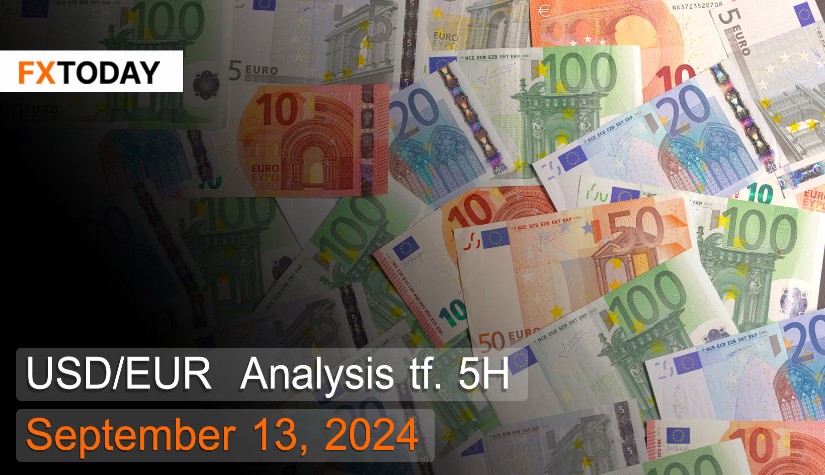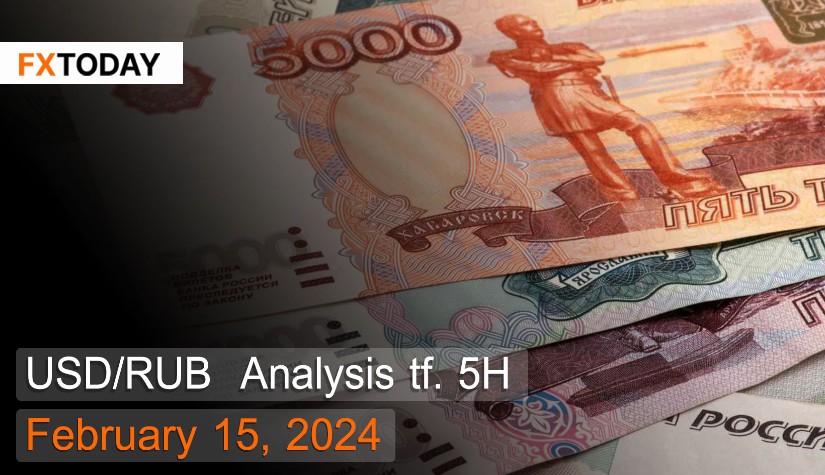The European Central Bank (ECB) has decided to cut interest rates by another 25 bps.
The euro to appreciate again as investors weigh the ECB's latest monetary policy decision. The central bank reduced interest rates as expected, and the latest inflation data was in line with forecasts. However, core inflation, which excludes volatile food and energy prices, is expected to rise slightly in 2024 and 2025.
The ECB decided to cut the interest rate by 25 bps to 3.5% to ease current monetary policy, reflecting a continued slowdown in inflation. As a result, refinancing and loan rates have also decreased to 3.65% and 3.9%, respectively. However, the ECB still needs to pressure inflation back to its 2% target sustainably, indicating that future rate cuts will depend on current economic data and conditions, without adhering to any specific predetermined path.
Investors and analysts believe the ECB will cut rates at least two more times by the end of this year, given the ongoing trend of slowing inflation. Additionally, the ECB's inflation forecasts are around 2.5% in 2024, 2.2% in 2025, and 1.9% in 2026. Although these figures have been slightly revised upward due to volatile energy prices, inflation in the services sector has also risen slightly. However, inflationary pressures within the Eurozone continue to increase as companies need to control production and labor costs in line with growth capabilities, resulting in minimal increases in job openings.
Employment in the Eurozone grew by 0.2% in the second quarter of 2024, slightly slowing from a 0.3% increase in the first quarter. This trend indicates growing employment in some industries, particularly in the services sector. However, employment growth has continued to decelerate over the past four quarters. The highest employment growth was observed in the Netherlands and Poland, while core economies saw a 0.2% increase, with Germany contracting by 0.1%.
Industrial production in the Eurozone fell by 0.3% month-on-month in July, in line with market expectations. This data suggests that output continues to slow in many sectors, such as intermediate goods production (goods used to produce other goods), which slowed down again by 1.3%. Germany continues to face challenges in its manufacturing sector, with output declining more than 3%, reflecting weakening demand both domestically and abroad.
Techical analysis data (5H)
Resistance: 0.9025, 0.9037, 0.9044
Source: Investing.com
Buy/Long 1: If the price touches support in the price range of 0.9001 - 0.9007 but cannot break the support at 0.9007, you may set a TP at approximately 0.9037 and SL at around 0.8989 or according to your acceptable risk.
Buy/Long 2: If the price breaks the resistance in the price range of 0.9025 - 0.9037, you may set a TP at approximately 0.9044 and SL at around 0.9001 or according to your acceptable risk.
Sell/Short 1: If the price touches resistance in the price range of 0.9025 - 0.9037 but cannot break the resistance at 0.9025, you may set a TP at approximately 0.9001 and SL at around 0.9044 or according to your acceptable risk.
Sell/Short 2: If the price breaks the support in the price range of 0.9001 - 0.9007, you may set a TP at approximately 0.8989 and SL at around 0.9037 or according to your acceptable risk.
Pivot point September 13, 2024 08:45 PM. GMT+7
|
Name
|
S3
|
S2
|
S1
|
Pivot Points
|
R1
|
R2
|
R3
|
| Classic | 0.8989 | 0.9001 | 0.9007 | 0.9019 | 0.9025 | 0.9037 | 0.9044 |
| Fibonacci | 0.9001 | 0.9008 | 0.9012 | 0.9019 | 0.9026 | 0.903 | 0.9037 |
| Camarilla | 0.9008 | 0.901 | 0.9012 | 0.9019 | 0.9015 | 0.9017 | 0.9019 |
| Woodie's | 0.8987 | 0.9 | 0.9005 | 0.9018 | 0.9023 | 0.9036 | 0.9042 |
| DeMark's | - | - | 0.9004 | 0.9017 | 0.9022 | - | - |
















